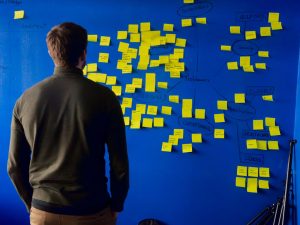In a recent interview, renowned futurist and computer scientist Ray Kurzweil reiterated his prediction that humans will achieve a millionfold increase in intelligence by 2045. This transformation, he believes, will be aided by brain interfaces formed with nanobots non-invasively inserted into our capillaries. We’re going to be a combination of our natural intelligence and our cybernetic intelligence,” Kurzweil stated.
“We are going to expand intelligence a millionfold by 2045, and it will deepen our awareness and consciousness.”
While Kurzweil imagines a physical intervention to bridge the gap between man and machine, other philosophers and AI experts believe that some form of merger is inevitable and, in some ways, has already begun. In July, Oxford’s Marcus du Sautoy and Nick Bostrom discussed the possibilities of our AI future, concluding that a kind of synthesis appears inevitable. I think we are headed toward a hybrid future,” Sautoy commented.
“We still believe that we are the only beings with a high level of consciousness.
Predicted hybrid future by 2045
This is part of the Copernican journey, showing that we are not unique.
We’re not at the center.”
However, this hybrid AI-human existence brings numerous political and personal issues. Questions arise over employment needs, the potential for extended human lifespans, and the fundamental definition of what it means to be human. Kurzweil, along with many futurists, remains optimistic.
He argues for a Universal Basic Income as a necessary adaptation to the future job market and foresees dramatic medical improvements that could make immortality plausible. He suggests that by the early 2030s, we could reach “longevity escape velocity,” every year lost to aging is offset by advancements in science, potentially allowing humans to live much longer lives. Much like the flying cars predicted in Back to the Future Part II, Kurzweil’s vision could face significant challenges as these dates approach.
Yet, his predictions continue to stir debate and fascination as we potentially stand at the brink of a major moment in technological history.




























